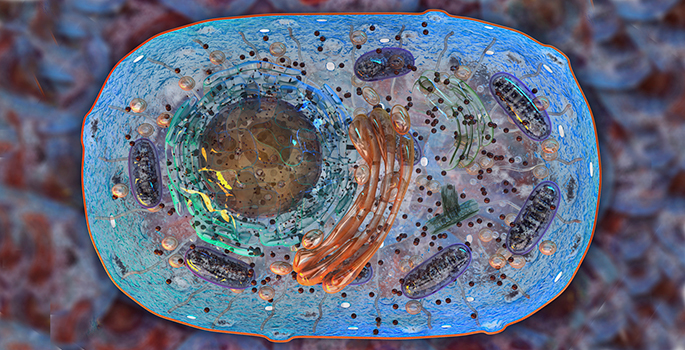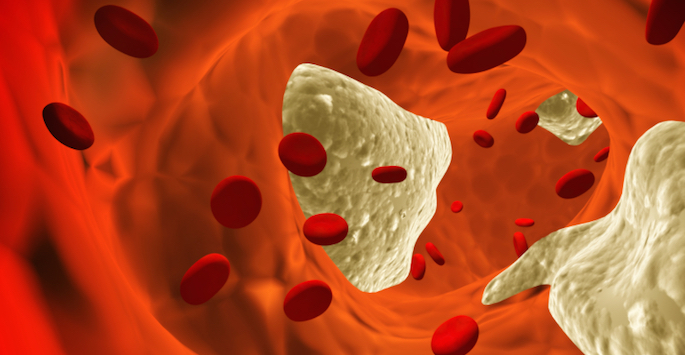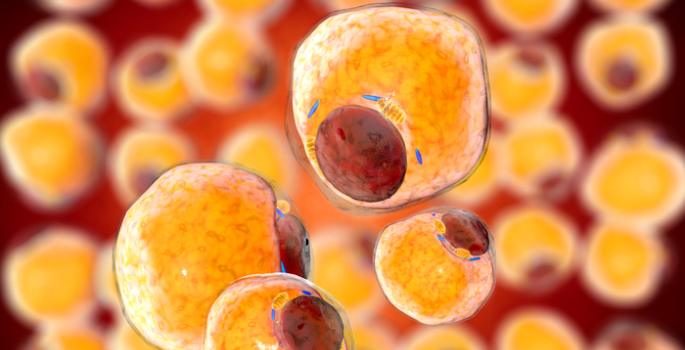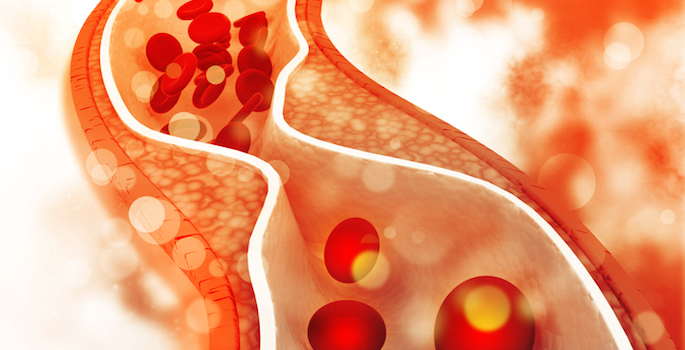Department Of Pharmacology
-

Assembling cell power plant machinery
Tina Iverson and colleagues provide a structural view into the assembly of a protein machine essential for cellular energy production. Read MoreSep 3, 2020
-

‘Scavenger’ molecule may point to new atherosclerosis treatment
A small-molecule “scavenger” that reduces inflammation and formation of atherosclerotic plaque in blood vessels in mice potentially could lead to a new approach for treating atherosclerosis in humans, according to researchers at Vanderbilt University Medical Center. Read MoreAug 20, 2020
-

A potential new targeted therapy for metastatic melanoma
While 60 percent of people with metastatic melanoma, an aggressive type of skin cancer, have multiple treatment options available to them, roughly 40 percent either do not respond to treatment, or relapse. Read MoreAug 19, 2020
-

New tools to study bioactive lipids
Vanderbilt researchers have identified and characterized inhibitors of an enzyme that synthesizes lipid signaling molecules with roles in energy balance, inflammation and addiction. Read MoreJul 14, 2020
-

Single mutation causes seizure disorder
A single mutation in one gene can impair inhibitory signaling in the brain and cause multiple types of seizures and behavioral abnormalities. Read MoreJun 22, 2020
-

Robotic technology speeds arrhythmia gene classification
Vanderbilt University Medical Center investigators have used high-throughput robotic technology to rapidly study and classify variations in a gene linked to heart rhythm disorders and cardiac conditions. Read MoreJun 12, 2020
-

Blocking stress-induced relapse
Danny Winder and colleagues are teasing apart the actions of neurotransmitter receptors in a brain region linked to anxiety and addiction, with a goal of finding treatments for substance use disorders. Read MoreApr 8, 2020
-

A new contributor to atherosclerosis
Sean Davies and colleagues are exploring lipid aldehydes produced during oxidative stress and their contribution to HDL dysfunction and atherosclerosis. Read MoreJan 27, 2020
-

Kavalali receives Humboldt Research Award
Ege T. Kavalali, PhD, professor and acting chair of the Department of Pharmacology in the Vanderbilt University School of Medicine, has been elected a recipient of a prestigious Humboldt Research Award by the Alexander von Humboldt Foundation of Germany. Read MoreDec 31, 2019
-

Cell fate signaling
A newly identified protein interaction that affects cell cycle regulation may be an attractive target for cancer therapy. Read MoreDec 17, 2019
-

Study explores potential new class of antidepressants
Researchers at VUMC have taken a major step that could ultimately facilitate development of a new class of antidepressants which may relieve symptoms more rapidly and effectively and with fewer side effects than current medications. Read MoreNov 21, 2019
-

Team discovers one more piece to the autism puzzle
Vanderbilt investigators have linked genetic mutations in a single receptor to epilepsy, autism and intellectual disability. Read MoreOct 3, 2019
-

Guengerich, Sanders-Bush named ASPET fellows
Vanderbilt University’s F. Peter (Fred) Guengerich, PhD, and Elaine Sanders-Bush, PhD, are among 22 prominent scientists named this week to the inaugural class of fellows of the American Society for Pharmacology and Experimental Therapeutics (ASPET). Read MoreSep 20, 2019
-

A probiotic treatment for obesity?
Engineered bacteria that produce beneficial compounds — and that could potentially be administered in foods like yogurt — may be a future treatment for obesity and other chronic diseases. Read MoreAug 8, 2019
-

Defective transporter linked to autism
A first-of-its-kind mouse model may help reveal mechanistic underpinnings for the altered behaviors of autism spectrum disorder. Read MoreJul 24, 2019
-

Potassium balance and glaucoma
Vanderbilt Eye Institute researchers have discovered that an imbalance in the ionic environment of retinal ganglion cells may contribute to functional impairments in glaucoma. Read MoreJul 15, 2019
-

The arrestin-GPCR connection
Vsevolod Gurevich and colleagues have discovered new insights into arrestin proteins, which turn off a cell's environmental message "inbox." Read MoreApr 12, 2019
-

Reprogramming cells for kidney repair
Lauren Woodard and Matthew Wilson have discovered a way to reprogram adult human kidney cells into cells similar to those that form during embryonic development, which could lead to new kidney disease treatments. Read MoreMar 14, 2019
-

New way to stimulate learning?
Stimulating the vagus nerve triggers certain epigenetic changes involving learning and memory. Read MoreMar 14, 2019
-

Vanderbilt scientists report new modeling of brain signaling
Heidi Hamm and colleagues have reported the first animal model of a "shut-off valve" for neurotransmitter and hormone release through SNARE complex-mediated membrane fusion. Read MoreMar 7, 2019